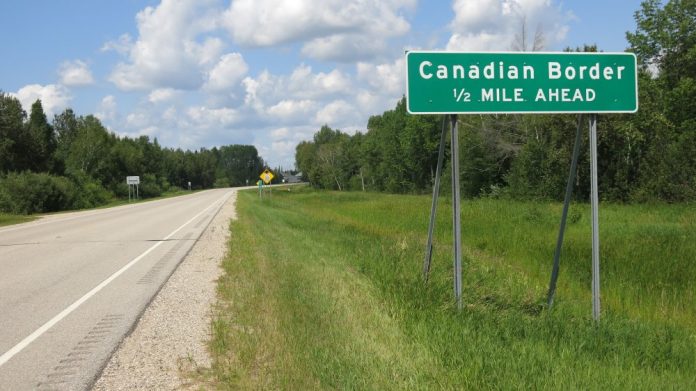

Canada will lift all remaining COVID-19 restrictions for international and domestic travelers starting Oct. 1, according to that country’s Public Health Agency in a press release.
Prior to the pandemic, over 2.4 million Americans crossed into Canada by car each year, according to Statistics Canada.
The regulatory changes come 2 1/2 years after Canada, like many other countries, first implemented requirements for people entering the country and traveling within it by public transport. Its policies included mask mandates, random testing and vaccination requirements, and were some of the strictest in the world.
While Canada has loosened some COVID-19 requirements for entry into the country since the pandemic began, a number of others have remained in place for both air and rail travelers. Those will formally end on Saturday, the Public Health Agency of Canada said in a news release, which noted that the upcoming shift includes the removal of all entry restrictions, in addition to testing, quarantine and isolation requirements for anyone arriving in Canada, regardless of citizenship status.
This means that travelers will no longer have to submit mandatory health information through ArriveCAN in order to enter the country, the health agency said. Travelers will not be required to provide proof of vaccination or undergo COVID-19 testing prior to or upon arrival, and Canada’s previous policies for quarantine, isolation and symptom monitoring of travelers will be lifted as well.
Update: Effective October 1st, we’re removing COVID-19 border and travel measures. We’ll continue to follow the latest available science and do whatever is necessary to protect your health. Stay protected by keeping your vaccinations up to date. More here: https://t.co/F8q1lb8yGF
— Justin Trudeau (@JustinTrudeau) September 26, 2022
Similar restrictions will be lifted for Canadian cruises, although health officials said that certain guidelines will remain in place to protect passengers and crew members. Ongoing restrictions for cruise travel will be in line with U.S. policies, according to the agency’s announcement.
The upcoming changes to Canada’s COVID-19 rules also apply to mask mandates, which will no longer be in effect for people traveling on planes or trains. However, health officials said that continuing to wear face masks on both forms of transportation is still “strongly recommended” and people should refrain from traveling entirely if they have symptoms of COVID-19.
Canadian health officials explained that the government’s decision to end travel restrictions was informed by the country’s high vaccination rates and lower incidences of hospitalizations and deaths due to COVID-19.
“Thanks largely to Canadians who have rolled up their sleeves to get vaccinated, we have reached the point where we can safely lift the sanitary measures at the border,” said Canadian Health Minister Jean-Yves Duclos in a statement included with the health agency’s announcement. “However, we expect COVID-19 and other respiratory viruses will continue to circulate over the cold months, so I encourage everyone to stay up-to-date with their COVID-19 vaccination, including booster doses and exercise individual public health measures.”
About Associated Press
Founded in 1846, The Associated Press is a non-profit news agency that operates as a cooperative, unincorporated association. Its members are U.S. newspapers and broadcasters.










